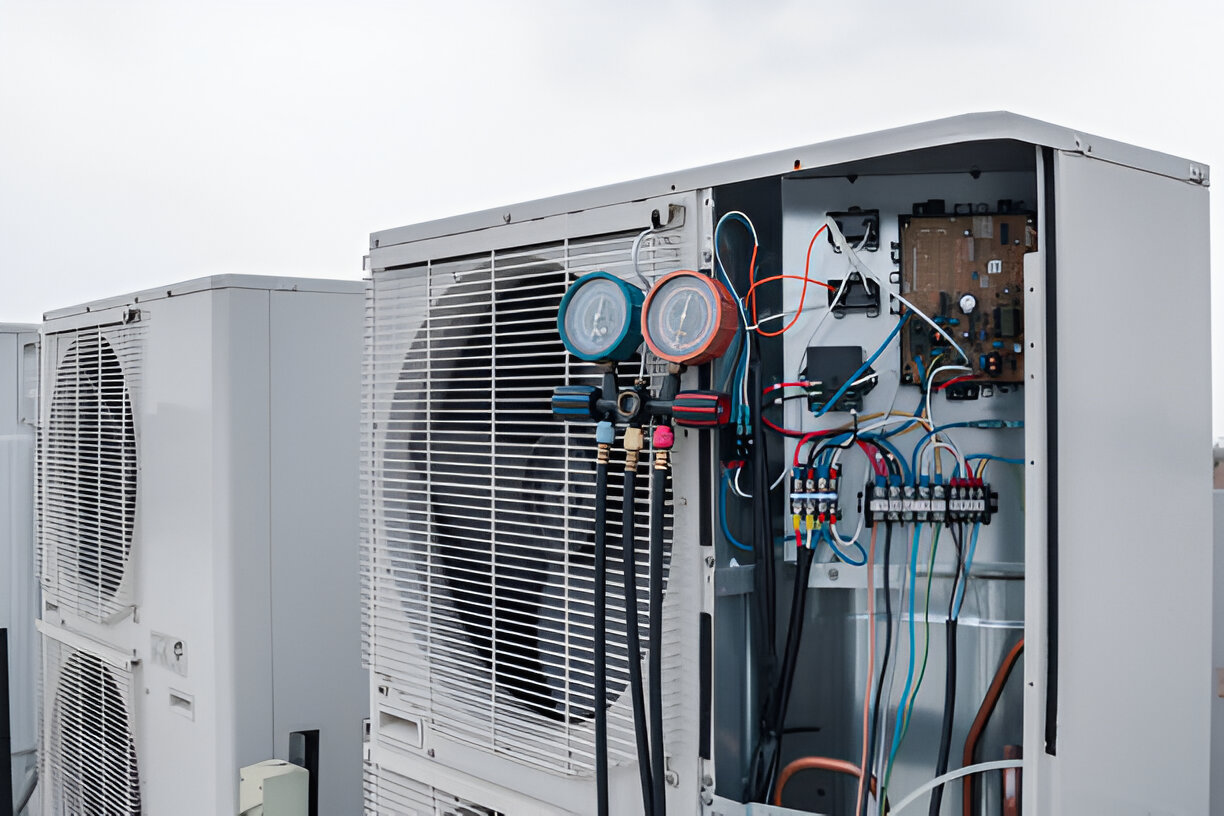
Heat Pump Replacement in Shrewsbury, PA
Replacing a heat pump is one of the most effective ways to restore comfort, lower utility bills, and increase reliability in Shrewsbury, PA homes. With our region’s hot, humid summers and cold winters, an aging or undersized heat pump can struggle to keep indoor temperatures steady and costs down.
Why consider a heat pump replacement in Shrewsbury, PA
- Persistent loss of heating or cooling capacity, frequent short cycling, or rising utility bills often signal an end-of-life system.
- Older single-stage units and systems with refrigerant leaks are less efficient in extended cold snaps common to southern York County.
- Newer cold-climate heat pumps and variable-speed models perform better through Shrewsbury’s winter lows while delivering efficient cooling in summer.
Replacing before a catastrophic failure avoids emergency service calls during peak weather and unlocks better efficiency and warranty protection.
Common heat pump problems that lead to replacement
- Reduced heating output during cold weather or extended defrost cycles.
- Repeated compressor or reversing valve failures.
- Refrigerant leaks or systems with obsolete refrigerants that are costly or illegal to recharge.
- Rising repair frequency and costs that exceed the expected life of the equipment.
- Mismatched or undersized equipment after previous partial replacements.
The replacement process — what to expect
Replacing a heat pump is a stepwise process designed to deliver the right-sized, energy-efficient system for your home and local climate.
System evaluation and diagnostics
- A licensed technician inspects the existing equipment, ductwork, electrical service, refrigerant lines, and thermostat.
- Indoor comfort issues, noise, airflow, and any safety concerns are documented.
- Photos and measurements are taken to plan the new installation with minimal disruption.
Efficiency and load calculations
- Accurate sizing is based on a heat load calculation, not rule-of-thumb tonnage. The calculation accounts for insulation, window orientation, home age, and Shrewsbury’s winter design temperatures.
- Correct sizing prevents short cycling, reduces energy use, and improves humidity control.
Comparing energy-efficient models and brands
- Options typically include cold-climate air-source heat pumps, multi-stage or variable-speed inverter models, and ductless mini-splits where ductwork is limited.
- Look for Energy Star rated equipment and high HSPF2/EER2 or SEER2 numbers for best year-round performance.
- Established manufacturers such as Amana, Mitsubishi, Trane, and Carrier offer reliable options; selection depends on required features, warranty, and local support.
- The technician will review model tradeoffs: single-stage versus variable-speed compressors, matched indoor coil options, and controls that improve comfort and efficiency.
Cost influences and available incentives
- Replacement cost depends on capacity, system type (air-source vs ductless vs multi-zone), upgrade needs for electrical or ductwork, and permit requirements.
- Homeowners in Pennsylvania may qualify for federal tax credits, state or utility rebates, and manufacturer incentives for high-efficiency equipment. Local financing programs or contractor financing can spread payments over time.
Permits, scheduling, and logistics
- Required permits and inspections are arranged. Lead times vary by model availability; some high-efficiency units may require weeks for delivery.
- A typical timeline includes final system selection and permit submission, one or more weeks for equipment delivery, and a 1 to 2 day on-site installation for a single-family home.
Removal and responsible disposal of old equipment
- Refrigerant recovery is performed to EPA standards to prevent release. Metals and components are recycled where possible. Old units are removed carefully to protect landscaping and interior floors.
Installation and commissioning
- New equipment is mounted, connected to refrigerant lines, electrical service, and controls. Ductwork seals and airflow are adjusted.
- Commissioning includes refrigerant charge verification, electrical inspection, thermostat calibration, safety control testing, and verification of heating/cooling performance across modes.
Post-installation testing and homeowner orientation
- The system is run through heating and cooling cycles, defrost operation, and variable-speed settings to ensure proper operation.
- You receive documentation on system operation, recommended filters, maintenance intervals, and warranty registration details.
Warranty and documentation
- Most manufacturers offer a limited parts warranty and a compressor warranty; extended labor or service warranties may be available.
- Keep purchase invoices, equipment serial numbers, and warranty registration receipts in a safe place; these are required for future claims.
- Proper installation and routine maintenance are typically necessary to preserve warranty coverage.
Benefits specific to Shrewsbury homeowners
- Improved winter performance with cold-climate heat pumps reduces reliance on backup heat and lowers winter energy use.
- Variable-speed units improve humidity control through humid summers, improving comfort and indoor air quality.
- Upgrading older systems can reduce noise and eliminate the risks associated with aging refrigerant lines and leaks.
- Rebates and incentives available in Pennsylvania frequently favor high-efficiency installations, increasing long-term savings.
Maintenance tips after replacement
- Schedule annual or biannual tune-ups to verify refrigerant, airflow, electrical connections, and controls.
- Replace or clean filters regularly to maintain airflow and efficiency.
- Keep outdoor units clear of debris and vegetation, especially in fall and winter.
- Monitor system performance and report unusual noises or cycling early to protect warranty and efficiency.
Replacing a heat pump in Shrewsbury, PA is an investment in comfort, reliability, and long-term energy savings. A thorough evaluation, correct sizing, informed equipment choices, and professional installation plus commissioning ensure the new system will meet your home’s needs through both the humid summers and cold winters we experience in southern York County.


Enjoy flexible financing options that make upgrading or repairing your HVAC system easy and budget-friendly.










